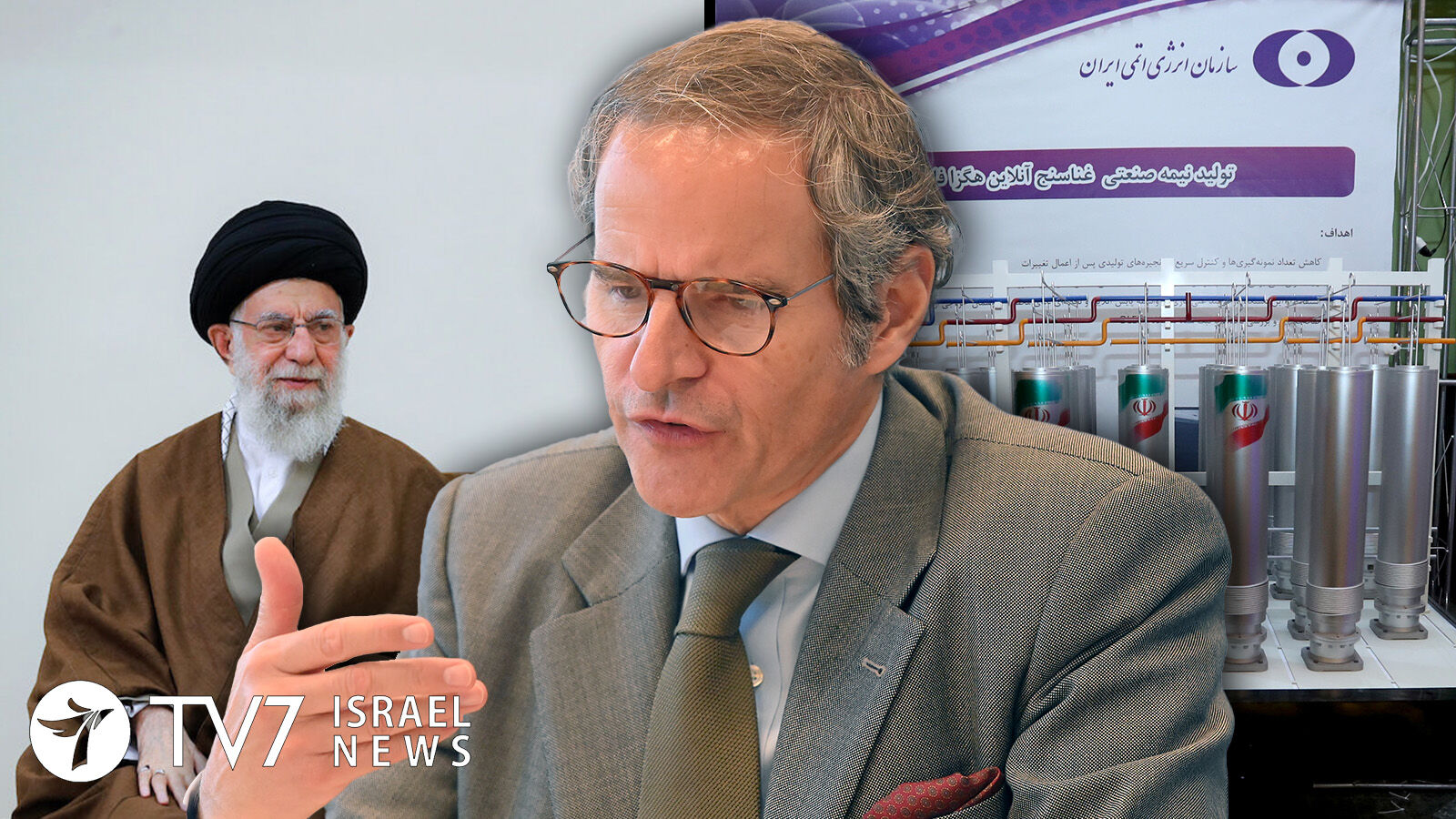The International Atomic Energy Agency’s (IAEA) 35-nation Board of Governors overwhelmingly passed a resolution formally criticizing the Islamic Republic for failing to explain uranium traces found at three undeclared sites, according to diplomats at the closed-door meeting yesterday.
By Erin Viner
Israeli leaders fully supported the United Nations nuclear watchdog‘s resolution rebuking Tehran for failing to fulfill its legal obligations in the context of its safeguards violations; which may prompt the future intervention by the UN Security Council (UNSC).
Only two countries, Russia and China, opposed the text while 30 voted in favor and three abstained, the diplomats said.
The IAEA text, submitted by the United States, Britain, Germany and France said the board “expresses profound concern that the safeguards issues related to these three undeclared locations (in Toorkooz-abad, Teheran & Marivan) remain outstanding due to insufficient substantive cooperation by Iran, despite numerous interactions with the agency,” and calls on Iran to engage with the IAEA “without delay.”
The resolution is the first Board of Governors to reproach Iran since June 2020.
“This is a significant resolution that exposes Iran’s true face,” Israeli Prime Minister Naftali Bennett said in a statement, adding that the IAEA members had “worked together with the aim of arresting and preventing Iran’s attainment of nuclear weaponry.”
Noting that the decision determined that the Islamic Republic “is neither cooperating with the IAEA nor obeying its directives” by preventing “the agency from fulfilling its important function,” the Israeli Premier further stressed that cooperation by “the many countries” which backed the resolution did so “in order to block and prevent Iran from attaining nuclear weapons.”
“For any mistake made by the enemy, we will raze Tel Aviv and Haifa to the ground by the order of the Supreme Leader,” Iran’s semi-official Tasnim news agency cited the army ground forces’ Commander Kiumars Heydari as saying on Wednesday.
The “IAEA vote is a clear warning light to Iran,” said Prime Minister Bennett, adding that the Iranian nuclear dispute should be addressed by the UNSC.
Israel’s Ministry of Foreign Affairs (MFA) also welcomed the decision as “a first and necessary step towards the goal of restoring Iran’s compliance with its safeguards obligations.”
Stressing that, “Iran’s pursuit of military nuclear capabilities has never ceased,” acting to “to systematically violate all its international commitments” while “working tirelessly to hide evidence and disrupt investigations in order to deceive the international community,” the MFA called for the world to support the IAEA’s “integrity and professionalism” by responding “with all the means at its disposal.”
Israeli Defense Minister Benny Gantz remarked that, “the IAEA took an important step in its decision to censure Iran following its noncompliance with inspections, and in response to nuclear activities in various sites spread across the country. Iran has demonstrated once again that it threatens both regional and global peace.”
Also calling for the international community to now “take concrete steps” following its condemnation,” Gantz insisted that, “every monitoring device that is turned off should be met with diplomatic and economic sanctions.”
“We must stand united and work closely together in facing Iranian regional and global aggression,” he added.
Diplomatic sources believe that passage of the IAEA resolution by an overwhelming majority vote – despite warnings by Iran of retaliation – could further damage prospects of resuming efforts to salvage the 2015 Joint Comprehensive Plan of Action (JCPOA). Indirect talks in Vienna on restoring the salvaging the nuclear deal between Tehran and world powers have repeatedly stalled and not convened since March.
The Ayatollah regime has repeatedly vowed to annihilate the Jewish State. Israel has consistently warned that its arch-enemy will try to secure a windfall in sanctions relief at the talks, without sufficiently rolling back nuclear bomb-making potential through its accelerated enrichment of uranium.
The Ayatollah regime has repeatedly vowed to annihilate the Jewish State. Israel has consistently warned that its arch-enemy will try to secure a windfall in sanctions relief at the talks, without sufficiently rolling back nuclear bomb-making potential through its accelerated enrichment of uranium.
Until now, Western powers had held off submitting a draft resolution to previous IAEA quarterly meetings to avoid exacerbating tensions with Iran, but the international community – particularly Israel – believe the pace of the Islamic Republic’s nuclear development program is close to being able to produce weapons.
The issue has now reached a boiling point after the IAEA recently revealed that Iran has still refused to provide credible answers on the particles found at three mainly old but undeclared sites – despite having agreed to do so three months ago.
“Those who push for anti-Iran resolution at IAEA will be responsible for all the consequences,” Iranian Foreign Minister Hossein Amir-Abdollahian wrote on Twitter earlier this week, saying that “any political action by the United States and its three European allies at the IAEA “will undoubtedly be met with a proportionate, effective and immediate response from Iran.”
Echoing that message, Iranian Foreign Ministry Spokesman Saeed Khatibzadeh said in a tweet yesterday that his country’s response to the resolution is “firm & proportionate” and “the initiators are responsible for the consequences.”
